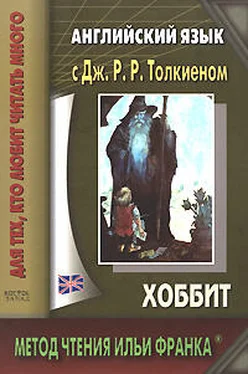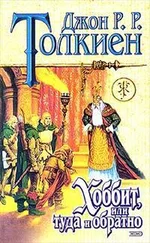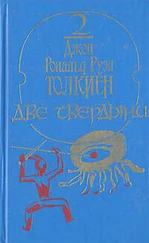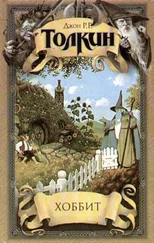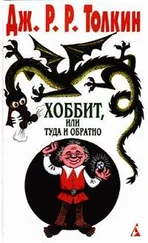quarter [ˈkwɔ: tǝ] extraordinary [ɪkˈstrɔ: d (ǝ) n (ǝ) rɪ] forgotten [fǝˈɡɔtn]
Gandalf! If you had heard only a quarter of what I have heard about him, and I have only heard very little of all there is to hear, you would be prepared for any sort of remarkable tale. Tales and adventures sprouted up all over the place wherever he went, in the most extraordinary fashion. He had not been down that way under The Hill for ages and ages, not since his friend the Old Took died, in fact, and the hobbits had almost forgotten what he looked like. He had been away over The Hill and across The Water on business of his own since they were all small hobbit-boys and hobbit-girls.
All that the unsuspecting Bilbo saw that morning (все, что неподозревающий Бильбо увидел в то утро) was an old man with a staff (был какой-то старик с посохом). He had a tall pointed blue hat (на нем была высокая остроконечная синяя шляпа), a long grey cloak (длинная серая накидка), a silver scarf (серебристый шарф) over which (над которым) a white beard hung down (белая борода свисала /вниз/) below his waist (ниже /его/ пояса; waist — талия ), and immense black boots (и огромные черные башмаки).
“Good morning (доброе утро)!” said Bilbo (сказал Бильбо), and he meant it (и именно это он и имел в виду). The sun was shining (солнце светило), and the grass was very green (и трава была очень зеленой). But Gandalf looked at him (но Гэндальф взглянул на него) from under long bushy eyebrows (из-под длинных кустистых бровей) that stuck out further than the brim of his shady hat (которые выступали вперед дальше, чем край его шляпы с широкими полями; shady — тенистый; shade — тень ).
“What do you mean (что вы имеете в виду)?” he said (сказал он). “Do you wish me a good morning (вы желаете мне доброго утра), or mean that it is a good morning (или вы считаете, что это утро доброе) whether I want not (хочу я этого или нет); or that you feel good this morning (или то, что вы чувствуете себя хорошо сегодня утром); or that it is morning to be good on (или что это утро, в которое надо быть добрым)?”
beard [bɪǝd] eyebrow [ˈaɪbraʋ] bushy [ˈbʋʃɪ]
All that the unsuspecting Bilbo saw that morning was an old man with a staff. He had a tall pointed blue hat, a long grey cloak, a silver scarf over which a white beard hung down below his waist, and immense black boots.
“Good morning!” said Bilbo, and he meant it. The sun was shining, and the grass was very green. But Gandalf looked at him from under long bushy eyebrows that stuck out further than the brim of his shady hat.
“What do you mean?” he said. “Do you wish me a good morning, or mean that it is a good morning whether I want not; or that you feel good this morning; or that it is morning to be good on?”
“All of them at once (все это: «все из них» одновременно), ” said Bilbo (сказал Бильбо). “And a very fine morning (и очень хорошее утро) for a pipe of tobacco (для трубочки табаку) out of doors (на открытом воздухе; door — дверь ), into the bargain (в придачу; bargain — торговая сделка ). If you have a pipe about you (если у вас с собой есть трубка), sit down (присаживайтесь) and have a fill of mine (и возьмите щепотку моего /табака/)! There’s no hurry (некуда торопиться: «нет спешки»), we have all the day before us (у нас впереди целый день)!”
Then Bilbo sat down on a seat by his door (затем Бильбо присел на стульчик у своей двери), crossed his legs (скрестил ноги), and blew out a beautiful grey ring of smoke (и выдохнул прекрасное серое колечко дыма) that sailed up into the air (которое поплыло вверх в воздухе) without breaking (не разорвавшись; to break — ломать (ся), разбивать (ся) ) and floated away over The Hill (и уплыло вдаль, за Холм).
“Very pretty (очень мило)!” said Gandalf (сказал Гэндальф). “But I have no time (но у меня нет времени) to blow smoke-rings this morning (чтобы выдувать колечки дыма этим утром). I am looking for someone (я ищу кого-нибудь) to share in an adventure (/кто бы/ разделил со мной приключение) that I am arranging (которое я организую), and it’s very difficult to find anyone (и очень трудно найти кого-нибудь). ”
tobacco [tǝˈbækǝʋ] bargain [ˈbɑ: ɡɪn] hurry [ˈhʌrɪ]
“All of them at once, ” said Bilbo. “And a very fine morning for a pipe of tobacco out of doors, into the bargain. If you have a pipe about you, sit down and have a fill of mine! There’s no hurry, we have all the day before us!”
Then Bilbo sat down on a seat by his door, crossed his legs, and blew out a beautiful grey ring of smoke that sailed up into the air without breaking and floated away over The Hill.
“Very pretty!” said Gandalf. “But I have no time to blow smoke-rings this morning. I am looking for someone to share in an adventure that I am arranging, and it’s very difficult to find anyone. ”
“I should think so (еще бы: «я бы подумал так») — in these parts (в этих-то краях; part — часть, доля, сторона )! We are plain quiet folk (мы обычные тихие люди) and have no use for adventures (и не нуждаемся в приключениях; use — применение, цель, польза ). Nasty disturbing uncomfortable things (/в этих/ отвратительных, тревожных, неуютных событиях)! Make you late for dinner (заставляют тебя опаздывать к обеду)! I can’t think what anybody sees in them (не могу понять, что кто-то видит в них /путного/), ” said our Mr. Baggins (сказал наш мистер Бэггинс), and stuck one thumb behind his braces (и засунул /один/ большой палец за свои подтяжки), and blew out another even bigger smoke-ring (и выдул другое, даже еще большее колечко дыма). Then he took out his morning letters (затем он достал свою утреннею почту; letter — письмо ), and began to read (и начал читать), pretending to take no more notice of the old man (притворяясь, что не обращает больше никакого внимания на старика). He had decided (он уже решил) that he was not quite his sort (что он был не совсем в его вкусе: «не совсем его сорта»), and wanted him to go away (и он хотел, чтобы тот ушел). But the old man did not move (но старик не двигался). He stood leaning on his stick (он стоял, опираясь на свою палку) and gazing at the hobbit (и смотря пристально на хоббита) without saying anything (ничего не говоря /при этом/), till Bilbo got quite uncomfortable (до тех пор, пока Бильбо стало совсем не по себе; uncomfortable — неудобный ) and even a little cross (и /он/ даже слегка рассердился; cross—поперечный; раздраженный, злой ).
Читать дальше
